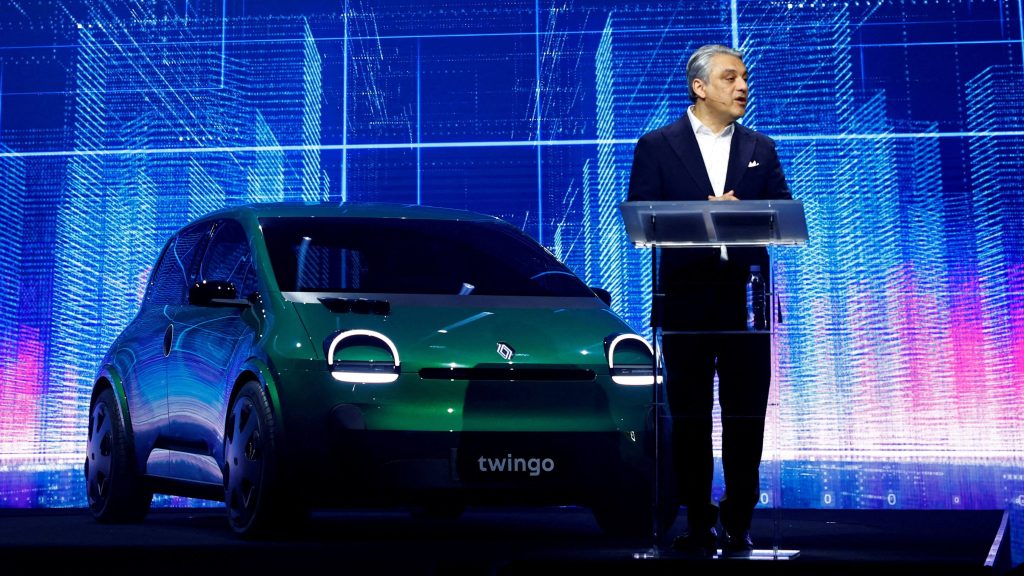Renault’s Ampere Starts Development Of New Electric Twingo, Sources Say

Renault will start engineering work on a more affordable version of its electric Twingo model this month, with production targeted in two years as it seeks to stave off intense competition from Chinese rivals.
China’s automakers, the world’s top producers of electric vehicles, are making fast inroads in the European market, pressuring incumbents like Renault to cut costs and speed up the time it takes to bring a new model to market.
Chinese EV makers have cut development time for new vehicles to an average of 2.5 years, around half the time automakers have traditionally needed.
The “freeze concept” for Renault’s new electric Twingo, where the vehicle’s outline is validated and set, took place last week, said the two sources familiar with the matter.
They declined to be identified because the process is confidential.
Ampere, Renault’s EV unit, will now start choosing suppliers, creating prototypes and scaling production, one of the sources added.
Renault has been working on slashing its development time from the five-year average for legacy carmakers. It developed the electric Megane in four years and the electric R5, to go on sale this year, in three years.
To speed up the Twingo launch, engineers will trim the number of parts by 20%, using more generic components and favouring parts available at suppliers, Gilles Le Borgne, head of technology at Renault, told French newspaper Les Echos last month.
A third source, also aware of Renault’s plans to mass produce the new Twingo in 2026, said the model would be assembled in Novo Mesto, Slovenia, where the current-generation electric Twingo ZE is produced.
Renault declined to comment.
More than 4 million Twingos, including both fossil fuel and electric versions, have been sold over the last 30 years.
European automakers are aiming to produce smaller EVs that sell below 20,000 euros ($21,572) to help them compete with Chinese brands like BYD.
Renault wants to partner with other automakers to further reduce costs and is in talks with Volkswagen about sharing the Twingo platform. Those talks will continue “in parallel” to work on the vehicle, which will not be affected by the outcome of the discussions, the first source said.
In March, Volkswagen brand CEO Thomas Schaefer said the automaker was working on options for an entry-level EV for launch by 2027, including working with partners. A decision is expected in the coming months.
(Reporting by Gilles Guillaume, writing by Nick Carey; Editing by Bernadette Baum)




